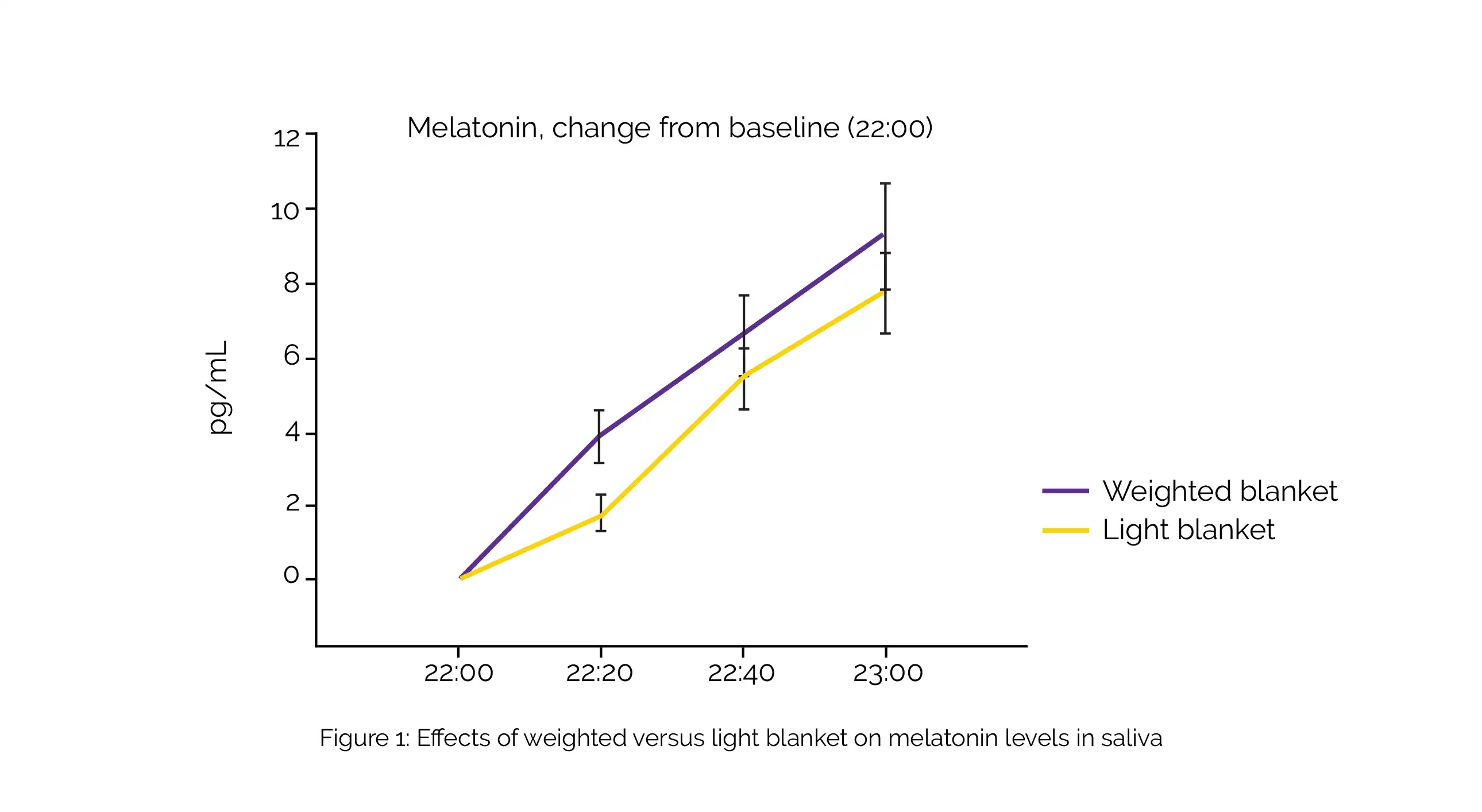Categories
Change Password!
Reset Password!


In young and healthy adults, weighted blankets use in bed is associated with a rise in salivary concentrations of melatonin when compared to the use of light blankets.
According to a crossover study, young, healthy people using weighted blankets have higher melatonin levels in their saliva before falling asleep. Researchers wanted to explore if wearing a heavier blanket at sleep (about 12% of body weight) led to greater salivary levels of melatonin and oxytocin than using a lighter blanket (about 2.4% of body weight).
Duration of sleep, subjective sleepiness, activity of alpha-amylase in saliva (as an indicative metric for sympathetic nervous system effect), and stress hormone cortisol were all investigated for potential variations. The one-hour salivary melatonin rise from baseline (i.e., 22:00) to lights off (i.e., 23:00) was around 32% greater when a weighted blanket was used, as shown in Figure 1:

Overall sleep duration and subjective sleepiness were the only other variables that did not change significantly across the blanket conditions. A weighted blanket may cause a greater melatonin release at bedtime. Future research should look at whether utilizing a weighted blanket often over a period of weeks or months has a consistent stimulatory impact on melatonin production. Researchers need to explore whether the observed rise in melatonin is therapeutically significant for the weighted blanket's previously mentioned effects on anxiety and insomnia.
Journal of Sleep Research
A weighted blanket increases pre-sleep salivary concentrations of melatonin in young, healthy adults
Elisa M. S. Meth et al.
Comments (0)